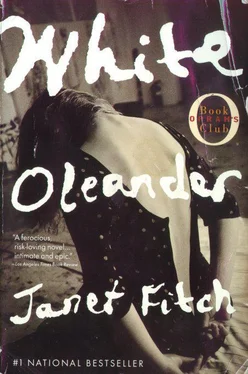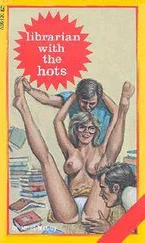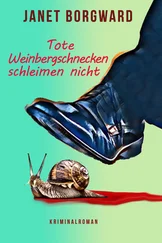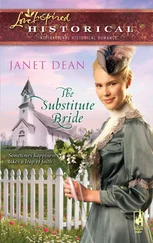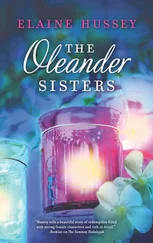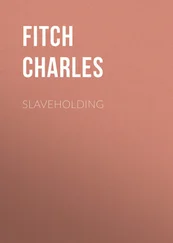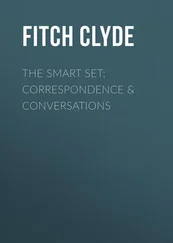Janet Fitch - White Oleander
Здесь есть возможность читать онлайн «Janet Fitch - White Oleander» весь текст электронной книги совершенно бесплатно (целиком полную версию без сокращений). В некоторых случаях можно слушать аудио, скачать через торрент в формате fb2 и присутствует краткое содержание. Жанр: Современная проза, на английском языке. Описание произведения, (предисловие) а так же отзывы посетителей доступны на портале библиотеки ЛибКат.
- Название:White Oleander
- Автор:
- Жанр:
- Год:неизвестен
- ISBN:нет данных
- Рейтинг книги:3 / 5. Голосов: 1
-
Избранное:Добавить в избранное
- Отзывы:
-
Ваша оценка:
- 60
- 1
- 2
- 3
- 4
- 5
White Oleander: краткое содержание, описание и аннотация
Предлагаем к чтению аннотацию, описание, краткое содержание или предисловие (зависит от того, что написал сам автор книги «White Oleander»). Если вы не нашли необходимую информацию о книге — напишите в комментариях, мы постараемся отыскать её.
White Oleander — читать онлайн бесплатно полную книгу (весь текст) целиком
Ниже представлен текст книги, разбитый по страницам. Система сохранения места последней прочитанной страницы, позволяет с удобством читать онлайн бесплатно книгу «White Oleander», без необходимости каждый раз заново искать на чём Вы остановились. Поставьте закладку, и сможете в любой момент перейти на страницу, на которой закончили чтение.
Интервал:
Закладка:
She did my numerology. I was a 50, which was the same as a 32. I had the power to sway the masses. She was a 36, which was the same as a 27, the Scepter. A number of courage and power. She used to be a 22 before she was married, a 4. Very bad. “So you see, Ron saved my life.” She laughed uneasily.
I couldn’t imagine ever having, or wanting to have, the power to sway the masses, but if it made her feel good, I figured, what was the harm. I helped her out with projects meant to boost good chi. One day we bought square mirrors and I actually climbed to the roof of the house to put them on the red tiles, facing Mrs. Kromach’s house. “So her bad chi will bounce back on her, the old bag.”
There was a rose trellis over the front path, and she didn’t like people who wouldn’t go through it. Only goodness and love can pass through a rose arch, she said. She was uneasy if someone came in the back door. She wouldn’t let me wear black. The first time I did, she told me, “Black belongs to Saturn, he’s unfriendly to children.”
I took off her pearls and put them back in the case under the scarves in her top left drawer. She kept most of her jewelry in a paper bag in the freezer, where she thought burglars wouldn’t find it. But the pearls couldn’t take being frozen, they had to stay warm.
In the right two drawers were her silk things, in light mid-tones, champagne and shell pink and ice blue, slips and nightgowns, bras and panties that matched. Everything folded and tucked with sachets. Below that, T-shirts in neat stacks, a white stack and a colored pile, celadon, mauve, taupe. To the left, shorts and light sweaters. Shawls on the bottom. Her winter clothes lay folded and sealed in zippered cases at the top of the closet.
This instinct to order and rituals was one of the things I liked best about Claire, her calendars and rules. She knew when it was time to put winter clothes away. I loved that. Her sense of order, graceful and eccentric, little secrets women knew, lingerie bags and matching underwear. She threw out my Starr underthings, full of holes, and bought me all new ones at a department store, discussing the fit of bras with the elderly saleslady. I wanted satin and lace, black and emerald green, but Claire gently overruled me. I pretended she was my mother and whined a bit before giving in.
CLAIRE HAD new photographs taken, actor’s head shots. We went to Hollywood to pick them up from a shop on Cahuenga. In photographs, she looked different, focused, animated. In person she was thin, dreamy, as full of odd angles as a Picasso mademoiselle. The photographer, an old Armenian man with a sleepy eye, thought I should have photographs too. “She could model,” he said to Claire. “I’ve seen worse.”
My hand instinctively rose to touch the scars on my jaw. Couldn’t he see how ugly I was?
Claire smiled, stroked my hair. “Would you like that?”
“No,” I said, low, so the photographer wouldn’t hear me.
“We’ll keep it in mind,” Claire said.
On the way back to the car in the heat of a pigeon-wing-pale afternoon, we passed an old hippie man with gray hair and a green army surplus bag strapped to his chest, asking people for money. Passersby shouldered his outstretched paper cup aside and crossed the street. He wasn’t menacing enough for this line of work. I thought of myself panhandling in the liquor store parking lot, but it wasn’t the same. I wasn’t an alkie, a drug addict. I was only fifteen. He’d done it to himself.
“Come on,” he said. “Help a guy out.”
I was ready to cross, to escape this scarecrow of a man, but Claire looked over at him. She didn’t know how to ignore people.
“Can you spare some change, lady? Anything’ll help.”
The light changed, but Claire wasn’t paying attention. She was digging in her purse, emptying out her change. She never learned about street people, that if you showed them the least little kindness, they’d latch onto you like castor seeds. Claire only saw how thin he was, the limp where he must have been hit by a car while panhandling between traffic lights. My mother would have offered to shove him out in front of a bus, but Claire cared. She believed in the commonality of the soul.
The hippie man pocketed the money. “You’re a real human being, lady. Most people won’t look a man in the eye when he’s down.” He gave me an accusing look. “I don’t care if a guy gives me something, I just want him to look me in the eye, you know what I’m saying?”
“I do,” Claire said, in her voice that was cool water and soft hands.
“I worked steady all my life, but I pulled my back out, see. I never drank on the job. I never did.”
“I’m sure you didn’t.” The stoplight turned red again. I was ready to pull Claire out into traffic. Everywhere we went, people ended up telling her their sad stories. They could see she was too polite to just walk away. He came closer. She was probably the first normal person who’d listened to him for days.
“Unemployment only lasts so long,” he said. I could smell him. Either he’d pissed on himself or someone else had done the honors. “Nobody gives a shit.”
“Some people do,” Claire said. The late afternoon sun was turning her dark hair red around the edges.
“You’re a real human being,” he said. “They’re out of style now, though. Machines, that’s what they want.” He was breathing right into her face, but she was too sweet to turn her head. She didn’t want to offend him. They always seemed to know that about her. “I mean, how many people they need to fry burgers?”
“Not enough. Or maybe too many.” She smiled, insecure, shoving her windblown hair out of her face.
The light turned green, but we were going nowhere. Stalled in the stream at Sunset and Cahuenga. People walked around us like we were a hole in the sidewalk.
He stepped closer again, lowered his voice confidentially. “Do you think of me as a man?” He stuck his tongue through the slot of a missing tooth.
She flushed, shrugged her shoulders, embarrassed. Of course she didn’t. I wanted to shove him off the curb.
“Women used to like me a lot. While I was working.”
I could see the tension on her face, she wanted to back away, but she didn’t want to hurt his feelings. She was twisting the bag of eight-by-ten glossies she’d just paid two hundred dollars for. A black Corvette went by, trailing rap music.
“You’re a nice lady, but you wouldn’t take your clothes off for me, would you.”
She was bending her photographs, her sensitive face quivering with contradiction. “I don’t . . .” she mumbled.
“I don’t blame you. But you wouldn’t.” He looked so sad.
I took her arm. “Claire, we have to go now.”
But she was too caught up in the homeless man who was pulling a mind trip on her. He had her snared.
“I miss women,” he said. “The way they smelled. I miss that. Like you, whatever you’ve got on.”
She wore her L’Air du Temps, out of place as a wildflower in a war zone. I was amazed he could detect her fragrance through his own stench.
But I knew what he meant. I loved the way she smelled too. I liked to sit on her bed as she combed and French-braided my hair. I could sit there as long as she wanted, just breathing the air where she was.
“Thank you,” she whispered. That was Claire, afraid of hurting anyone’s feelings, even this sad old bum.
“Can I smell your hair?” he asked.
She went pale. She had no boundaries. He could do anything, she wouldn’t know how to stop him.
“Don’t be scared,” he said, holding up his hands, the nails like horn. “Look at all these people. I won’t touch you.”
She swallowed and nodded, closed her eyes as the man came close, lifted a section of her dark hair gently on the tips of his fingers, like it was a flower, and breathed in the scent. She shampooed with rosemary and cloves. The smile on his face.
Читать дальшеИнтервал:
Закладка:
Похожие книги на «White Oleander»
Представляем Вашему вниманию похожие книги на «White Oleander» списком для выбора. Мы отобрали схожую по названию и смыслу литературу в надежде предоставить читателям больше вариантов отыскать новые, интересные, ещё непрочитанные произведения.
Обсуждение, отзывы о книге «White Oleander» и просто собственные мнения читателей. Оставьте ваши комментарии, напишите, что Вы думаете о произведении, его смысле или главных героях. Укажите что конкретно понравилось, а что нет, и почему Вы так считаете.
